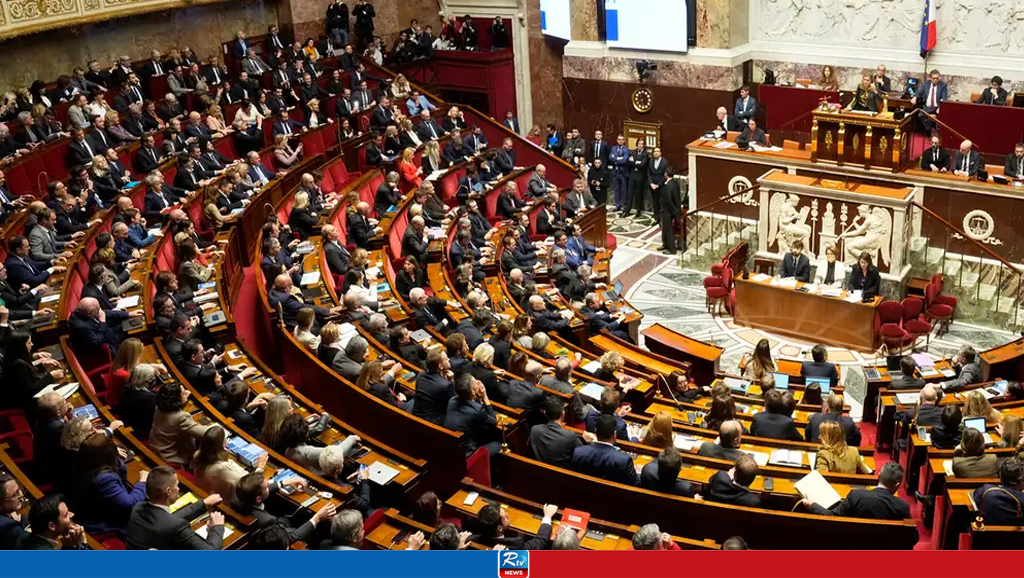Germany unveils bill to legalize cannabis
A controversial draft bill on legalizing the recreational use of the drug cannabis was unveiled on Wednesday by Health Minister Karl Lauterbach after it was approved by the German Cabinet.
Advocates of legal cannabis use in Germany's coalition government aim to legalize the drug this year but they face resistance from conservative lawmakers, some physicians and law enforcement representatives.
What did lawmakers say?
Lauterbach called the draft bill a "turning point" following policies on cannabis that had "unfortunately failed."
However, he stressed that use of the drug was not without risk.
"No one should falsely understand the law. The consumption of cannabis will be legalized, but it remains dangerous," he said in a joint statement from the Health Ministry and the Agriculture Ministry.
He said the aim was to curb the black market and drugs-related criminality, the trade with adulterated or toxic substances and the number of consumers.
"The protection of children and teenagers is a central element of the entire legislative project," the statement said, referring to a youth information campaign "Legal, but ..." that will be launched by the Health Ministry.
Agriculture Minister Cem Özdemir called the draft legislation "a significant step toward a progressive, reality-based drugs policy."
He said the "overdue" law would serve to decriminalize the many people who used cannabis solely for private purposes, as well as increasing the protection of children and young people.
According to federal government figures, 4.5 million adults in Germany used cannabis at least once in the last year.
What does the draft bill envisage?
The draft law would make it legal for people over 18 to possess up to 25 grams (0.9 ounces) of cannabis and to cultivate up to three plants for personal use.
There will also be approved so-called cultivation associations. Often referred to as "cannabis social clubs," they provide their members with homegrown cannabis products. Members will not be permitted to consume cannabis on the clubs' premises or within 200 meters (about 220 yards) of the location. The clubs themselves must not be within 200 meters of schools, day care centers, or kindergartens — which will make finding a suitable location quite a challenge.
Decriminalization is the first step. In the next step, specialist shops are able to sell cannabis and products containing THC — but only in selected districts and cities, which are to be named so-called model regions for a period of five years.
Originally there were high expectations for tax revenues and for savings in police and judiciary expenditures. But the estimates have been corrected and are now put at several hundred thousand euros, rather than billions.
The savings are offset by additional expenditure for the evaluation of the law as well as information and prevention offers.
Opposition to the bill from all sides
Physicians have criticized the proposals. In a joint statement, five associations of physicians for children and young people warned of "a threat to the mental health and development opportunities of young people in Germany."
The police union is also opposed to the bill.
And the German Association of Judges warned against extra work for the judiciary because of the many detailed regulations on the cannabis clubs and the delivery of drugs.
Conservative lawmakers from several states have also come out against the proposed law. They complain that the project is "medically irresponsible" or demonize it as an "attack on youth and health protection."
The interior minister of the eastern state of Saxony, Armin Schuster, of the center-right opposition Christian Democrats (CDU), told the corporate newsroom Redaktionsnetzwerk Deutschland that "this law will bring with it a complete loss of control."
Criticism also came from within the health minister's own party. "If there is something we don't need, then it is this law," Andy Grote, the interior minister of the city-state of Hamburg from Lauterbach's center-left Social Democrats (SPD), told public broadcaster NDR. "Experiences from other countries show that legalization causes a big rise in consumption, with all its risks and side effects."
Grote also cast doubt on whether the legalization of recreational cannabis use would lead to a reduction in black market trading, as is often claimed by advocates of the move.
"It is to be feared that illegal cannabis will be much in demand because of its higher potency and cheaper prices and that the black market and legal market will become mixed up together," he said.
Grote also said the regulation of cannabis use would require "a comprehensive bureaucracy of cannabis surveillance" to ensure that all its stipulations are upheld.
Even deputies from the SPD's coalition partner, the neoliberal Free Democrats who generally approve of cannabis legalization, have spoken of a "bureaucratic monster."
Proponents of legalization are also dissatisfied. They say the new regulations are too detailed and don't go far enough.
Lauterbach is unfazed. He considers the criticism from both sides to be a good sign and speaks of a "law with a sense of proportion."
17 Aug 2023,14:29




















 Live Tv
Live Tv









